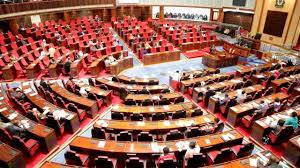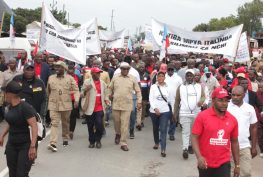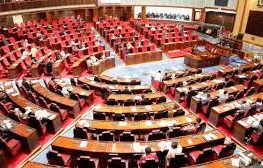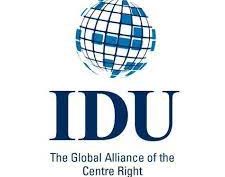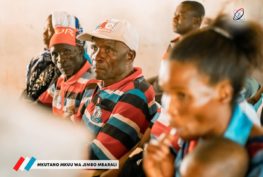CHAMA CHA DEMOKRASIA NA MAENDELEO
(CHADEMA)
POSITION OF THE PARTY’S CENTRAL COMMITTEE ON THE 3 BILLS OF LAW PRESENTED TO PARLIAMENT ON NOVEMBER 10, 2023
- INTRODUCTION
The Central Committee of the Party convened in an emergency session on 8/01/2024 with two specific agenda items: to discuss the 3 Election Laws and the political party law presented to Parliament and read for the first time on November 10, 2023, and to discuss the challenging/rising cost of living in the country.
In its analysis, the Party’s Central Committee was convinced without a doubt that all three bills presented to Parliament lacked and did not demonstrate the genuine intention to enable free and fair elections. To a large extent, these bills did not aim to promote democracy in our nation but rather to undermine it.
- EVALUATION OF THE CENTRAL COMMITTEE
In its evaluation, the Central Committee found that the government is not inclined to make fundamental improvements in the electoral system and the growth of democracy (in conducting and running fair political activities among parties). This is due to the following reasons:
- The President established a task force that spent billions of Tanzanian shillings and produced a report with specific recommendations on the need for an Independent Electoral Commission to facilitate free and fair elections. However, surprisingly, the bills presented to Parliament did not consider the recommendations of the President’s task force.
- Since the introduction of the multiparty system in 1992, international and domestic election observers have consistently reported deficiencies in the administration of our elections due to the absence of an Independent Electoral Commission. Despite various stakeholders, including political parties, civil society organizations, religious leaders, and social groups, expressing the importance of having an Independent Electoral Commission, the government has ignored these opinions in the bills presented to Parliament.
- Various stakeholders, including political parties, civil society organizations, religious leaders, and social groups, have provided their opinions on the importance of having an Independent Electoral Commission. However, the government has disregarded these opinions in the bills presented to Parliament.
- Despite holding conferences coordinated by the Council of Political Parties, TCD, and other stakeholders, where detailed suggestions for improving our electoral systems were provided, the bills presented to Parliament did not consider these recommendations, despite the government promising to take into account stakeholders’ resolutions in enhancing our electoral systems.
- CHADEMA has engaged in reconciliation meetings with the government and CCM, presenting proposals on how to address the current deadlock in the country, especially regarding a new constitution and improving our electoral systems, including specific proposals on obtaining an Independent Electoral Commission. However, these bills completely ignored our proposals, and the government failed to recognize their importance.
- Various cases have been filed in the East African Court of Justice, including one filed by Freeman Mbowe and others against the United Republic of Tanzania (Case No. 3&4,2019). The plaintiffs challenged the changes to the Political Parties Act of 2019, specifically sections 3,4,5,9,15, and 29, alleging that they violate the East African Community Treaty Articles 6(d),7(2), and 8(1)(c).
In its judgment on March 25, 2022, where the case was heard by five judges, the East African Court of Justice agreed with the applicants that the relevant sections of the Political Parties Act violate the East African Community Treaty. The government was urged to amend or repeal these sections to avoid violating the treaty it had signed. However, in these bills, the government has refused to implement these court decisions, contrary to the principles of the rule of law.
6(b) A case was filed in the African Court on Human and Peoples’ Rights by Bob Chacha Wangwe and LHRC against the United Republic of Tanzania. The complainants challenged sections 6(1), 7(2), and 7(3) of the Electoral Law of 1985, giving Directors of Municipalities, Town Councils, and Cities the authority to oversee elections.
In its decision, the African Court of Human and Peoples’ Rights ruled that having Directors of Municipalities oversee elections violates the African Charter on Human and Peoples’ Rights Article 13(1). The government of the United Republic of Tanzania was instructed to remove these sections from the law. Additionally, Tanzania was given 12 months to submit a report on the implementation of this decision, which was issued on June 13, 2022.
Despite the court order from the African Court of Human and Peoples’ Rights, the bills presented to Parliament completely ignored this decision, and they continue to propose that Directors of Municipalities should oversee elections.
- The National Electoral Commission’s report on the 2020 Presidential, Parliamentary, and Local Government Elections made recommendations on how to make the Commission independent and able to oversee fair elections. Among the recommendations were:
(i) Enactment of the National Electoral Commission Act to enable the Commission to carry out its responsibilities more effectively.
(ii) The inclusion of Commission officials at the local government level.
Despite the weaknesses and shortcomings of the Commission, the bills presented to Parliament completely disregarded these recommendations, even though the Commission has conducted various elections in the country and identified its own weaknesses.
Based on a thorough analysis and the Central Committee’s assessment, the following resolutions have been made:
The bills presented to Parliament on November 10, 2023, should be withdrawn from Parliament, and instead, the following actions should be taken:
- The government should present a bill to Parliament to facilitate the process of a new constitution, along with a roadmap for each step until a new constitution is obtained, considering the national consensus.
- The government should present to Parliament a bill for transitional amendments (minimum reforms) to the Constitution of the United Republic of Tanzania (URT) of 1977 to ensure free and fair elections after addressing the constitutional shortcomings that currently affect the laws being enacted.
- Regarding local government elections, the government should present to Parliament a bill in which, among other things, the National Electoral Commission is given the authority to oversee local government elections, and not be supervised by the Ministry of Regional Administration and Local Government according to regulations made by the Minister.
- The Bill amending the Political Parties Act (Political Parties Act as amended in 2019 and the Electoral Costs Act) should be withdrawn because it does not address the existing challenges. Additionally, the bill does not comply with the East African Court of Justice’s orders, as some sections were found to violate the East African Community Treaty.
- The bills presented to Parliament on November 10, 2023, should be withdrawn and rewritten according to the transitional amendments to the Constitution of the United Republic of Tanzania of 1977, as previously proposed.
- The Secretary-General of the Party should lead a party delegation to present the Party’s views and stance before the Parliament’s Constitutional, Legal, and Administrative Affairs Committee. The Secretary-General did so, but was rejected from presenting our general opinions on the bills and was asked to present an analysis of each section, indicating that the Committee has already made a decision and does not want to hear opinions outside the relevant sections of the bills.
- RESOLUTIONS OF THE CENTRAL COMMITTEE
Since all the proposals have been seemingly rejected, the Party announces peaceful demonstrations to pressure the government to consider the opinions and suggestions of various election stakeholders in the country. The demonstrations will begin in
Dar Es Salaam on January 24, 2024, until the government withdraws the bills from Parliament.
Regarding the rising cost of living, the Central Committee calls on the government to take decisive measures to alleviate the hardships of its citizens, including:
(i) Reducing taxes and levies on essential goods and services for citizens.
(ii) Eliminating luxury spending in government.
(iii) Combating rampant corruption in the government.
(iv) Presenting a plan and strategy to uplift citizens from the difficult living conditions in Parliament, including lowering the prices of essential goods or subsidizing some products.
Issued on January 13, 2024, by:
Freeman Aikaeli Mbowe,
National Chairman of the Party.

